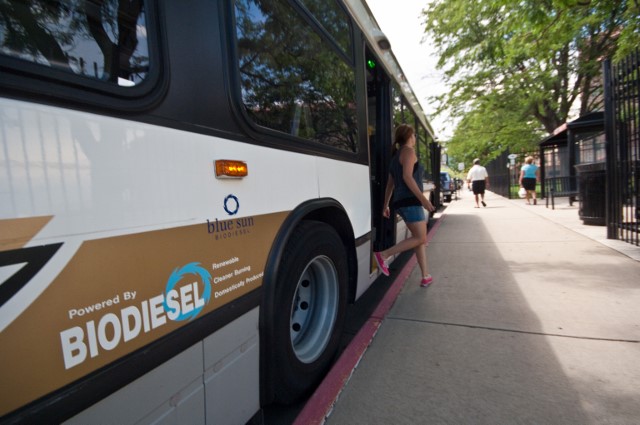
Biodiesel is a renewable fuel that is produced from vegetable oils, animal fats, or even recycled restaurant food. Using biodiesel is cleaner than using diesel and, as a result, reduces the amount of pollutants it releases into the air. Biodiesel is usually blended with varying concentrations, which includes B100 (pure biodiesel), B20 (20% biodiesel, 80% petroleum diesel), B5 (5% biodiesel, 95% petroleum diesel), and B2 (2% biodiesel, 98% petroleum diesel).
B20 is the most common biodiesel blend in the US. Usually, running B20 in your diesel engine does not need any type of engine modification. Operating with B20 yields similar fuel consumption, horsepower, and torque to vehicles operating on petroleum diesel. Biodiesel contains 3.2 times the amount of energy it takes to produce it. Therefore, as you move to higher blends of Biodiesel, the energy content per gallon decreases.
Biodiesel has been effective in reducing tailpipe emissions of unburned hydrocarbons, carbon monoxide, sulfate, and particulate matter, etc. In fact, according to the EPA, B20 has reduced particulate matter by 10%, CO was reduced by 11%, and unburned HC reduced by 21%. B20 reduces greenhouse gas emissions by 15% compared with petroleum diesel, and B100 reduces carbon dioxide emissions by over 75% compared with petroleum diesel.
![]() Look for biodiesel stations in San Diego.
Look for biodiesel stations in San Diego.
![]() Links for more information about biodiesel:
Links for more information about biodiesel:
- Alternative Fuels Data Center – DOE website with specific information about benefits and properties of biodiesel
- New Leaf Biofuel – San Diego based biodiesel production company serving Southern California region
- California Biodiesel Alliance
- BP Advanced Biofuels
- Biofuels Digest
